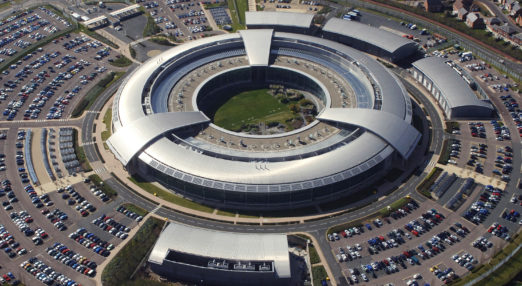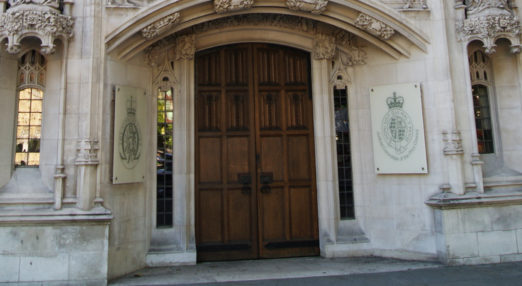Mass surveillance and Snoopers' Charter / Privacy and mass surveillance
Explainer: Liberty vs. Mass Surveillance
Posted on 13 Apr 2022
For nearly a decade, Liberty has been engaged in multiple legal actions against the Government and security services as we seek to protect everyone’s rights to privacy and freedom of expression. So what action have we taken and what’s next?
We all want to have control over our personal information and to have a Government that respects our right to privacy and freedom of expression.
That’s why Liberty has been challenging State mass surveillance powers for a decade.
Here we take a look back at the various legal action we have taken and what’s coming next.
Edward Snowden to 10 NGOs
In 2013, Edward Snowden revealed to the world that Governments in the US, UK and other countries were spying on their populations on an industrial scale: collecting private information without people’s knowledge, and sharing this data between them.
In the wake of Snowden’s revelations and public outcry, Liberty and others launched various legal actions challenging the lawfulness of the Regulation of Investigatory Powers Act (RIPA), which was being used to carry out bulk interception.
The courts grouped these cases together under one banner, often referred to as 10 NGOs.
After five years of hearings and judgments in UK courts, the European Court of Human Rights (ECtHR) said in 2018 that RIPA violated the rights to privacy and free expression protected by Articles 8 and 10 of the European Convention on Human Rights.
We had won the case, but the Government had since replaced RIPA with the Investigatory Powers Act 2016 (IPA) which gave more powers to the intelligence agencies to spy on us, and became known as the “Snoopers’ Charter”.
Liberty vs the Snoopers’ Charter
We launched a separate legal action against the IPA in January 2017, specifically targeting:
- bulk hacking – the power to access, control and alter electronic devices like computers and phones on an industrial scale, regardless of whether their owners are suspected of involvement in crime
- bulk interception – the authority to read texts, online messages and emails and listen in on calls, without requiring suspicion of criminal activity
- bulk acquisition of everybody’s communications data and internet history – the power to force communications companies and service providers to hand over records of emails, phone calls, texts and browsing history to state agencies to store, data-mine and profile.
In April 2018, the High Court said the IPA was incompatible with EU law in the way that it allowed state agencies to access data held by telecommunications operators, and the Act was amended.
But in June 2019, the Court said the ‘bulk powers’ don’t breach privacy and free expression rights and the Act contains sufficient safeguards for journalistic and legal communications. We disagreed and applied for permission to appeal.
In the meantime, Liberty, Amnesty International and Privacy International among others had also appealed parts of the 10 NGOs judgment, so the ECtHR could more specifically consider bulk powers and data-sharing between states.
And in May 2021, the court’s Grand Chamber said the bulk powers in RIPA breached human rights laws – a judgment that can be taken account of in Liberty’s appeal against the Snoopers’ Charter ruling.
Then, in preparation for the IPA appeal, the Government admitted in its legal papers that the safeguards in the Snoopers’ Charter don’t comply with human rights laws as they:
- fail to protect journalistic confidentiality (breaching freedom of expression laws)
- fail to protect the right to privacy when masses of intercepted data are searched in a way that can identify people without proper authorisation.
On 8 April 2022, the High Court gave permission for Liberty’s appeal to proceed on those grounds, and three others. The Court found that the appeal should be heard over issues surrounding the lawfulness of:
- inadequate safeguards regarding sharing intercepted material with overseas Governments
- inadequate safeguards around lawyer-client communications
- the power to create “bulk personal datasets” must also be heard at appeal.
The case continues, and we will be back in court later this year.


the Government admitted [...] the safeguards in the Snoopers’ Charter don’t comply with human rights laws
Connected case: Liberty and Privacy International vs MI5
As part of the preparation for the High Court hearing in the Snoopers’ Charter case, it was revealed in court that MI5 has been unlawfully holding people’s data obtained through the bulk powers we are challenging.
The full nature and extent of MI5’s illegal activity remains unknown as the Government is trying to keep it from the public. But the Investigatory Powers Commissioner said it was severe enough that he considers MI5’s handling of data to be in “special measures”.
Liberty and Privacy International – which has also uncovered unlawful activity by MI5 – launched a joint case against MI5 in February 2020 to force the security service to reveal the full extent of its unlawful conduct, to obtain a court ruling on this conduct, and ensure that all data and surveillance warrants obtained through it are deleted.
A hearing is due in July 2022.
"it was revealed in court that MI5 has been unlawfully holding people’s data obtained through the bulk powers we are challenging"
Fight continues
Bulk surveillance powers allow the State to collect data that can reveal a huge amount about any one of us – from our political views to our sexual orientation.
These mass surveillance powers do not make us safer.
Our right to privacy protects all of us. We remain hopeful that our legal action will take us a step closer to scrapping these dangerous, oppressive surveillance powers, and ensuring our rights are protected.
Find out more
-




HUMAN RIGHTS GROUPS WIN LANDMARK MASS SURVEILLANCE RULING
View this
-


Home Office decision to veto expert ruled unlawful
View this
-


Legal intervention: Privacy International v Investigatory Powers Tribunal
View this
-


Legal challenge: 10 NGOs
View this
-




Legal Challenge: MI5 breaches of Investigatory Powers Act
Liberty and Privacy International are taking MI5 to court.
View this
-




Legal challenge: Investigatory Powers Act
View this
I'm looking for advice on this
Did you know Liberty offers free human rights legal advice?
What are my rights on this?
Find out more about your rights and how the Human Rights Act protects them
Did you find this content useful?
Help us make our content even better by letting us know whether you found this page useful or not
